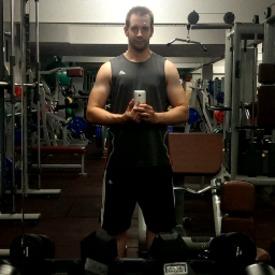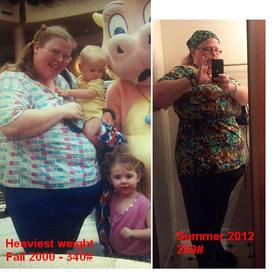HOW a body knows its the next day of new calories eaten

secretgirl4611
Posts: 474 Member
I am almost lost as how to ask this ? properly but I will try my best to put forth what I need an understanding of:
Ok, for EXAMPLE:
Say I reached a total of 1500 calories by 7pm and decided I am not gonna eat ne more cals until the next day.
So, my ? is when is the next day to the BODY? does it automatically know ok around mid-night or 5am is the so called NEXT DAY?
To then start fresh again on calorie intake?
Or what if I ate 1500 for my day then fell asleep for 4 hours as a nap during mid day or sumthing.
Since the body burns calories when you sleep. Would I once again be under 1500 calories?
BASICALLY WHEN AND HOW LONG DOES THE BODY KNOW WHEN ITS THE NEXT DAY TO START OVER FRESH TO TAKE IN THE NEW CALORIES FOR THE DAY STARTING FROM 1 CALORIE TO WHATEVER THE ENDING CALORIE GOAL IS PER DAY?
DOES NE ONE KNO?
Ok, for EXAMPLE:
Say I reached a total of 1500 calories by 7pm and decided I am not gonna eat ne more cals until the next day.
So, my ? is when is the next day to the BODY? does it automatically know ok around mid-night or 5am is the so called NEXT DAY?
To then start fresh again on calorie intake?
Or what if I ate 1500 for my day then fell asleep for 4 hours as a nap during mid day or sumthing.
Since the body burns calories when you sleep. Would I once again be under 1500 calories?
BASICALLY WHEN AND HOW LONG DOES THE BODY KNOW WHEN ITS THE NEXT DAY TO START OVER FRESH TO TAKE IN THE NEW CALORIES FOR THE DAY STARTING FROM 1 CALORIE TO WHATEVER THE ENDING CALORIE GOAL IS PER DAY?
DOES NE ONE KNO?
7
Replies
-
I am almost lost as how to ask this ? properly but I will try my best to put forth what I need an understanding of:
Ok, for EXAMPLE:
Say I reached a total of 1500 calories by 7pm and decided I am not gonna eat ne more cals until the next day.
So, my ? is when is the next day to the BODY? does it automatically know ok around mid-night or 5am is the so called NEXT DAY?
To then start fresh again on calorie intake?
Or what if I ate 1500 for my day then fell asleep for 4 hours as a nap during mid day or sumthing.
Since the body burns calories when you sleep. Would I once again be under 1500 calories?
BASICALLY WHEN AND HOW LONG DOES THE BODY KNOW WHEN ITS THE NEXT DAY TO START OVER FRESH TO TAKE IN THE NEW CALORIES FOR THE DAY STARTING FROM 1 CALORIE TO WHATEVER THE ENDING CALORIE GOAL IS PER DAY?
DOES NE ONE KNO?
It doesn't. Your body does not look at calories in/out on a daily basis - its a continuous cycle.5 -
The number of calories set is for 24 hours. Your body doesn't 'reset' when you sleep or anything. It's burning all day and all night.3
-
THiS. For some reason people have this idea that metabolism stops when we go to sleep. There's a reason why you weigh less in the morning (if you sleep at night). Metabolism still runs the same whether you sleep or are awake.I am almost lost as how to ask this ? properly but I will try my best to put forth what I need an understanding of:
Ok, for EXAMPLE:
Say I reached a total of 1500 calories by 7pm and decided I am not gonna eat ne more cals until the next day.
So, my ? is when is the next day to the BODY? does it automatically know ok around mid-night or 5am is the so called NEXT DAY?
To then start fresh again on calorie intake?
Or what if I ate 1500 for my day then fell asleep for 4 hours as a nap during mid day or sumthing.
Since the body burns calories when you sleep. Would I once again be under 1500 calories?
BASICALLY WHEN AND HOW LONG DOES THE BODY KNOW WHEN ITS THE NEXT DAY TO START OVER FRESH TO TAKE IN THE NEW CALORIES FOR THE DAY STARTING FROM 1 CALORIE TO WHATEVER THE ENDING CALORIE GOAL IS PER DAY?
DOES NE ONE KNO?
It doesn't. Your body does not look at calories in/out on a daily basis - its a continuous cycle.
A.C.E. Certified Personal/Group FitnessTrainer
IDEA Fitness member
Kickboxing Certified Instructor
Been in fitness for 28+ years and have studied kinesiology and nutrition1 -
yeah, it doesn't matter. the body isn't trying to lose weight with you, it's just doing it's job and keeping you alive. if today you eat 500 calories and tomorow you get to 2000, your body will ajust to it. there are no "new calories", it's continuous.0
-
Just be consistent. I count my "reset" at midnight, so if I have a late-night craving, it comes out of what I can eat the next day.3
-
I know all of this number business can be confusing at first. The idea is to AVERAGE whatever your calorie target is over several days. If you eat 1700 one day & 1500 the next, your body can't tell the difference between that & eating 1600 two days in a row. Relax & do your best. You'll be fine.6
-
I don't think it even matters if you're consistent as long as you track any food eaten on one day or the other. Sometimes my 2am eating (like today) goes on the previous day because I fell asleep without dinner. Sometimes it goes on the next day.3
-
There goes the theory behind calorie cycling.
THiS. For some reason people have this idea that metabolism stops when we go to sleep. There's a reason why you weigh less in the morning (if you sleep at night). Metabolism still runs the same whether you sleep or are awake.I am almost lost as how to ask this ? properly but I will try my best to put forth what I need an understanding of:
Ok, for EXAMPLE:
Say I reached a total of 1500 calories by 7pm and decided I am not gonna eat ne more cals until the next day.
So, my ? is when is the next day to the BODY? does it automatically know ok around mid-night or 5am is the so called NEXT DAY?
To then start fresh again on calorie intake?
Or what if I ate 1500 for my day then fell asleep for 4 hours as a nap during mid day or sumthing.
Since the body burns calories when you sleep. Would I once again be under 1500 calories?
BASICALLY WHEN AND HOW LONG DOES THE BODY KNOW WHEN ITS THE NEXT DAY TO START OVER FRESH TO TAKE IN THE NEW CALORIES FOR THE DAY STARTING FROM 1 CALORIE TO WHATEVER THE ENDING CALORIE GOAL IS PER DAY?
DOES NE ONE KNO?
It doesn't. Your body does not look at calories in/out on a daily basis - its a continuous cycle.
A.C.E. Certified Personal/Group FitnessTrainer
IDEA Fitness member
Kickboxing Certified Instructor
Been in fitness for 28+ years and have studied kinesiology and nutrition0 -
There goes the theory behind calorie cycling.
How about not confusing the issue. The OP seems confused enough.0 -
when I do nights I reset to noon but on days its midnight..... the body doesnt have a clue..its whats eaten over a period of time...thats why one bad day does not blow the diet.....1
-
I like your answer .0
-
Its not that the body knows a 24 hour period, it is actually the opposite. As humans we've pretty much organised our world around the orbit of the sun, i.e. a day in time, that happens to be 24hrs so it makes sense for guidelines on calorie consumption to also be based around a 24 hour period. If our day was actually 36 hours long, then we'd likely still have daily targets but those targets would be higher (assuming in said imaginary world our bodies are even the same).4
-
Its not that the body knows a 24 hour period, it is actually the opposite. As humans we've pretty much organised our world around the orbit of the sun, i.e. a day in time, that happens to be 24hrs so it makes sense for guidelines on calorie consumption to also be based around a 24 hour period. If our day was actually 36 hours long, then we'd likely still have daily targets but those targets would be higher (assuming in said imaginary world our bodies are even the same).
I'm like totally freaking out right now... parallel universe man!! haha2 -
that is why when I count I count by the week... I have this weird algorhithm that I devised that allows me a certain amount through the week... if I have a daily deficit or overage it goes into the weekly pot of what I can eat

I get bored... and use different systems that all basically boil down to calorie restriction...
the BASIC point is that you consistently reduce your calories... it doesn't matter WHEN you count food... just that you count it... I work overnights... so my "day" by my sleep cycle would be from 0900-0900... but for calorie counting purposes I use a 0000-2359 day... because it is easier to calculate here on mfp...
the point is consistency2 -
Its not that the body knows a 24 hour period, it is actually the opposite. As humans we've pretty much organised our world around the orbit of the sun, i.e. a day in time, that happens to be 24hrs so it makes sense for guidelines on calorie consumption to also be based around a 24 hour period. If our day was actually 36 hours long, then we'd likely still have daily targets but those targets would be higher (assuming in said imaginary world our bodies are even the same).
I'm like totally freaking out right now... parallel universe man!! haha
Imagine how many meals you would have to eat in a day in order for your metabolism to keep going?? Tupperware would make a fortune!!2 -
that is why when I count I count by the week... I have this weird algorhithm that I devised that allows me a certain amount through the week... if I have a daily deficit or overage it goes into the weekly pot of what I can eat

I get bored... and use different systems that all basically boil down to calorie restriction...
the BASIC point is that you consistently reduce your calories... it doesn't matter WHEN you count food... just that you count it... I work overnights... so my "day" by my sleep cycle would be from 0900-0900... but for calorie counting purposes I use a 0000-2359 day... because it is easier to calculate here on mfp...
the point is consistency
Cool, if you get bored why not try pretending the day is 36 hours long... just for fun 1
1 -
I work nights 5 days a week and totally agree with you!0
-
that is why when I count I count by the week... I have this weird algorhithm that I devised that allows me a certain amount through the week... if I have a daily deficit or overage it goes into the weekly pot of what I can eat

I get bored... and use different systems that all basically boil down to calorie restriction...
the BASIC point is that you consistently reduce your calories... it doesn't matter WHEN you count food... just that you count it... I work overnights... so my "day" by my sleep cycle would be from 0900-0900... but for calorie counting purposes I use a 0000-2359 day... because it is easier to calculate here on mfp...
the point is consistency
Cool, if you get bored why not try pretending the day is 36 hours long... just for fun
Too funny!0 -
There goes the theory behind calorie cycling.
Calorie cycling???? Thought I'd heard of everything - but this is a new one for me - please explain?0 -
It's the practice of having higher and lower calorie days. The theory is the high, low, mid days will keep the metabolism "revved" up. Of course it's all bro science. It doesn't matter as long as you keep a weekly deficit.
There goes the theory behind calorie cycling.
Calorie cycling???? Thought I'd heard of everything - but this is a new one for me - please explain?
I am even starting to think that carb cycling is a bunch of nonsense. When I make cycling I am talking about high, mid, low, high etc. I am starting to think it's much easier just to have set macros for say 6 days and the have one high day. Anyway, I am in another topic now.1 -
Is this a joke!?
 5
5 -
I am almost lost as how to ask this ? properly but I will try my best to put forth what I need an understanding of:
Ok, for EXAMPLE:
Say I reached a total of 1500 calories by 7pm and decided I am not gonna eat ne more cals until the next day.
So, my ? is when is the next day to the BODY? does it automatically know ok around mid-night or 5am is the so called NEXT DAY?
To then start fresh again on calorie intake?
Or what if I ate 1500 for my day then fell asleep for 4 hours as a nap during mid day or sumthing.
Since the body burns calories when you sleep. Would I once again be under 1500 calories?
BASICALLY WHEN AND HOW LONG DOES THE BODY KNOW WHEN ITS THE NEXT DAY TO START OVER FRESH TO TAKE IN THE NEW CALORIES FOR THE DAY STARTING FROM 1 CALORIE TO WHATEVER THE ENDING CALORIE GOAL IS PER DAY?
DOES NE ONE KNO?
You are taking it all too literally :flowerforyou:
It does not know, only you know when the next day end, begins. The ONLY guide the body will have is when you go to bed and get continual hours (say seven, eight etc) without consuming any food or drink. This is actually a "fast", hence why breakfast is "breaking the fast" and is deemed quite important.
YOUR day will end and the next one begin at midnight, your time. With regards to your body though, no it does not know it just continues working regardless but will use that nighttime fast as a general guide.1 -
Its not that the body knows a 24 hour period, it is actually the opposite. As humans we've pretty much organised our world around the orbit of the sun, i.e. a day in time, that happens to be 24hrs so it makes sense for guidelines on calorie consumption to also be based around a 24 hour period. If our day was actually 36 hours long, then we'd likely still have daily targets but those targets would be higher (assuming in said imaginary world our bodies are even the same).
I'm like totally freaking out right now... parallel universe man!! haha
LMAO! :laugh:0 -
It's the practice of having higher and lower calorie days. The theory is the high, low, mid days will keep the metabolism "revved" up. Of course it's all bro science. It doesn't matter as long as you keep a weekly deficit.
There goes the theory behind calorie cycling.
Calorie cycling???? Thought I'd heard of everything - but this is a new one for me - please explain?
I am even starting to think that carb cycling is a bunch of nonsense. When I make cycling I am talking about high, mid, low, high etc. I am starting to think it's much easier just to have set macros for say 6 days and the have one high day. Anyway, I am in another topic now.
I carb cycle... sort of... I have 4 low carb days then one regular day.... mainly so I can have a built in cheat day... it isn't to trick my body or anything... but just because I can do anything for 4 days... and I am fairly consistently loosing weight... I am finding that "dieting" is more of a mental thing than a physical thing 2
2 -
Cool, if you get bored why not try pretending the day is 36 hours long... just for fun

many of my days actually ARE 36 hours long... like today for example... I woke up at 1500 yesterday... I MIGHT make it to bed by 2100 tonight... maybe... I work 1900-0730... so....
I work nights...
plus I am not sure how to convince the computer here at mfp to let me have 36 hour days... without major reprogramming
although it does seem like an interesting theory2 -
Is this a joke?
 1
1 -
Like everyone before said, your body cannot tell how many you eat between today, tomorrow, etc. Worry about your weekly average. How it breaks down day-to-day is up to you. If there is a deficit, you will lose!0
-
You have to keep a calender somewhere you can see it, like on your desk, on the wall, or maybe even on a smartphone.
When you look at the calender and see that its the next day your body will subconsciously know to reset the calorie meter. Just remember to keep turning the pages at the end of each month.3 -
At last, the secret of the plateau is revealed: those people forgot to turn the page.You have to keep a calender somewhere you can see it, like on your desk, on the wall, or maybe even on a smartphone.
When you look at the calender and see that its the next day your body will subconsciously know to reset the calorie meter. Just remember to keep turning the pages at the end of each month.7 -
you can also look at a weeks worth of calories and not worry about it day to day. that way, if one day is 400 over you can spread the deficit to account for it over the other 6 days of that week0
This discussion has been closed.
Categories
- All Categories
- 1.4M Health, Wellness and Goals
- 398.5K Introduce Yourself
- 44.7K Getting Started
- 261K Health and Weight Loss
- 176.4K Food and Nutrition
- 47.7K Recipes
- 233K Fitness and Exercise
- 462 Sleep, Mindfulness and Overall Wellness
- 6.5K Goal: Maintaining Weight
- 8.7K Goal: Gaining Weight and Body Building
- 153.5K Motivation and Support
- 8.4K Challenges
- 1.4K Debate Club
- 96.5K Chit-Chat
- 2.6K Fun and Games
- 4.8K MyFitnessPal Information
- 18 News and Announcements
- 21 MyFitnessPal Academy
- 1.5K Feature Suggestions and Ideas
- 3.2K MyFitnessPal Tech Support Questions




















